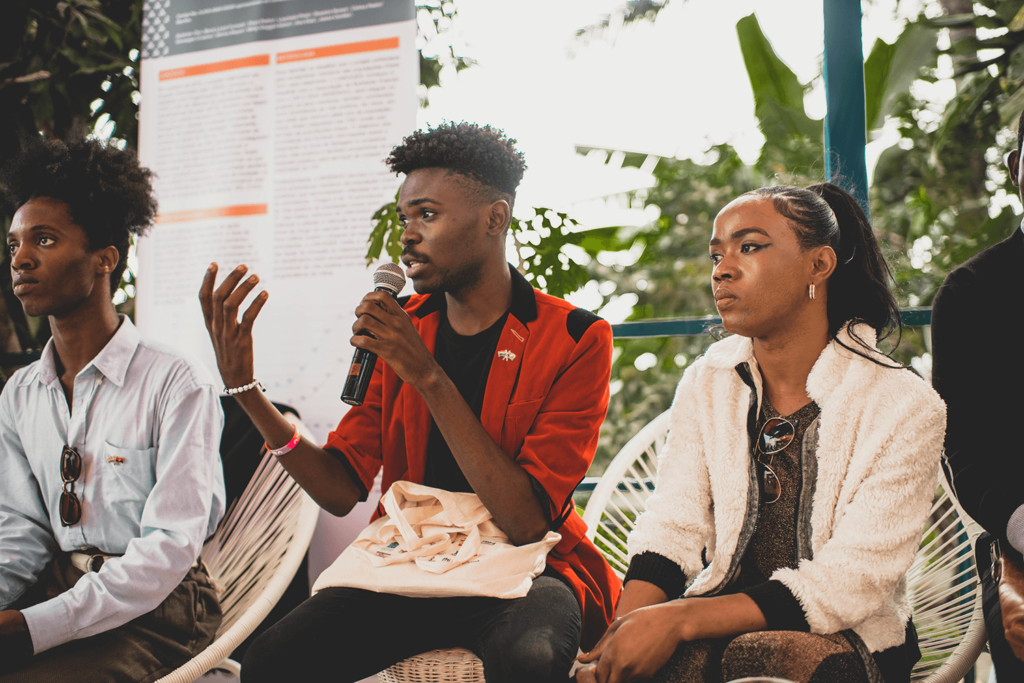Linkages across the Continuum of HIV Services for Key Populations Affected by HIV (LINKAGES) Project
Linkages across the Continuum of HIV Services for Key Populations Affected by HIV (LINKAGES) Project

Overview
The Linkages across the Continuum of HIV Services for Key Populations Affected by HIV (LINKAGES) project, led by FHI360, was implemented in Angola from 2015 to 2019 with support from the US Agency for International Development (USAID) and the US President’s Emergency Plan for AIDS Relief (PEPFAR). As an operational partner, MSH worked with civil society organizations (CSOs), government stakeholders, key populations, and providers to expand HIV-related prevention, testing, and care services across Angola.
The innovation of LINKAGES Angola was in developing tailored programming for each key population—female sex workers (FSWs), men who have sex with men (MSM), and transgender (trans) people—in recognition of the differentiated needs and preferences of each group. Representatives of key population groups were involved in creating and implementing their own solutions to barriers to getting tested for HIV and to initiating and adhering to antiretroviral therapy (ART).
The project’s contributions to national guidance on legal rights pertaining to gender and sexual orientation also paved the way for increased access to HIV services for key populations. CSO and government partners, too, benefitted from project activities, particularly the development of mutually beneficial, collaborative relationships that will far outlast LINKAGES and will have an enduring and positive impact on key populations.
Highlights:
- Between 2015 and 2019, LINKAGES worked with 11 CSOs and 5 community groups to bring HIV prevention, testing, and care services to 59,528 individuals at community hotspots in the Luanda, Bie, and Benguela provinces.
- Generated critical data to inform programming through the PLACE biobehavioral study of HIV and sexually transmitted infections (STIs), which found that 36% of FSWs, 56% of MSM, and 55% of trans women knew their HIV status; 17% of FSWs, 34% of MSM, and 55% of trans women were on ART; and 100% of FSWs and MSM and 0% of trans women on ART were virally suppressed.
- Developed distinct, tailored interventions for each key population group to meet their needs and preferences. FSW peer educators were trained and equipped to provide HIV testing, counseling, and gender-based violence services; the enhanced peer outreach approach was used to reach MSM to persuade peers in their own social and sexual networks to be tested for HIV; and monthly support groups for trans women were held at a community center, where two nurses provided prevention and testing services.
- Fourteen CSO and community group partners established effective referral pathways to 21 public health facilities in Luanda province for initiating key populations living with HIV on treatment.
- Led the development of a community health information system to enable CSOs to follow clients along the continuum of services, which was adopted at the national level. The system also led to the adoption of national community HIV monitoring indicators that include key populations and risk disaggregation.
- Across the life of the project, LINKAGES and its partners identified 74% of estimated HIV positive cases among FSWs, 69% among MSM, and 16% among trans women.
- Contributed to updating national STI guidelines and a home-based care manual for people living with HIV and to developing a Know-Your-Rights manual on Angola’s legal framework regarding gender identity, sex work, and sexual orientation.
- With additional, complementary funding from the United Nations Development Programme and the Global Fund, conducted trainings to sensitize more than 600 police officers in Luanda, Viana, and Cacuaco municipalities about the needs and rights of FSWs and the relationship between gender-based violence and HIV.
LINKAGES Angola: Summary of Achievements
Accelerating HIV epidemic control in Angola: A sustainable model for comprehensive HIV services
Donors & Partners
Donors
The United States Agency for International Development
The United States President’s Emergency Plan for AIDS Relief
Partners
FHI 360